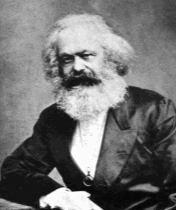|
Is Epistemology the Essence of Philosophy?
Recollections by V. N. Sadovskii of the 1950s and 1960s in Moscow State University.
Excerpt from V. N. Sadovskii, "Filosofiia v Moskve v 50-e i 60-e gody [Philosophy in
Moscow in the 50s and 60s]," in V. A. Lektorskii, Filosofiia ne konchaetsia [Philosophy
Has Not Ended], Moscow: ROSSPEN, vol. 2, 1999, pp. 27 - 8.
[page 27] Hence, to get to the point, as logical investigation began to spring up [in the
USSR], so did the "theses on epistemology." As far as I know the authorship of these
theses belonged to E. V. Il'enkov and V. I. Korovikov (in any case, when these theses were
rejected by the official faculty "luminaries" [at Moscow State University], they in particular
-- Il'enkov and Korovikov -- were exposed to the main persecution). The basic thoughts in
these theses were surprisingly simple and attractive (their acceptance is undoubtedly
important for the possibility of real creativity in philosophy). Unrestrained ontologism,
which ruins philosophy, must be rejected, but excessive epistemological autonomy also
liquidates philosophy, as a matter of fact. This is especially necessary since the Marxist
classics, in particular Engels, insisted on this in a completely unambiguous way (which
constituted a typical and very forceful argument at that time [in the 50s and 60s]). In order
to recognize that this is so, it is sufficient to read the familiar assertion of F. Engels,
expressed at the end of his work Ludwig Feuerbach and the End of Classical German
Philosophy, especially its final conclusion: "For philosophy, having been expelled from
nature and history, there remains only the realm pure thought, so far as anything is left of
it: the theory of the laws of the thought process itself, logic and dialectic." (Marx, K.,
Engels, F., Soch. T. 21, s. 316 [See Marx Engels, Collected Works, New York:
International Publishers, 1975 -, vol. 26, p. 397]). This proposition of Engels really was a
stumbling block for the orthodox philosophy of Marxism -- to reject it would be impossible
(since the classics are unerring), but how is it to be interpreted? If follows that
epistemology is the essence of philosophy, and for its own good, [page 28] Marxism
should begin with this thesis.
|


